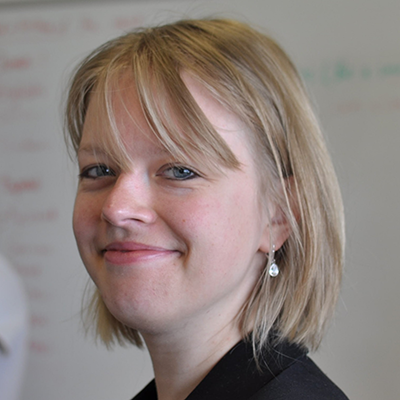Veronika Cheplygina
I’m an assistant professor in medical image analysis at TU Eindhoven. My research and teaching is focused on using machine learning algorithms to recognize patterns of illness in medical scans. One of the projects I’m working on is recognizing the lung disease COPD – the third major cause of death worldwide – in chest CT scans. This is challenging because although a lot of scans are available, it is time-consuming for experts to annotate them, which hurts the performance of the algorithms. Therefore I’m studying how to improve predictions with only a limited amount of annotated data. Previously I worked on this topic at Erasmus Medical Center in Rotterdam.
I was interested in artificial intelligence already at the start of my studies, and since the Media & Knowledge Engineering MSc (now covered in the MSc Computer Science) had several subjects such as Pattern Recognition and Machine Learning, it was a logical choice for me. I enjoyed these subjects so much that I did my graduation project in this field, working on automatic sorting of post office parcels at a company called Prime Vision. I was also enjoying my time in Delft in general, being active in the mathematics & computer science student society `Christiaan Huygens’ and the student soccer club Ariston’80.
After graduation I decided to pursue a PhD in machine learning at TU Delft. I had an amazing time, challenging myself to work on difficult problems while collaborating with many excellent people who became my friends in the process. I had the chance to work with researchers from all over the world, presenting my research in Europe, US, Japan and China. I think some students have a negative view of doing a PhD because it’s “lonely” but this just depends on what you make of it yourself. I felt in charge of my PhD project and sought out activities (such as collaborative projects and organizing conferences) which complemented my research AND my personality. My advice to students would therefore be not to have a fixed mindset about what different careers entail, but to try it out for yourself, for example through open days and internships.

Graduation year: 2010
Bachelor programme: Media & Knowledge Technology
Master programme: Media & Knowledge Engineering (currently named: MSc Computer Science -track Data Science & Technology)
Current position: Assistant professor in medical image analysis, TU Eindhoven
Previous companies: Erasmus MC, TU Delft, Prime Vision
LinkedIn: